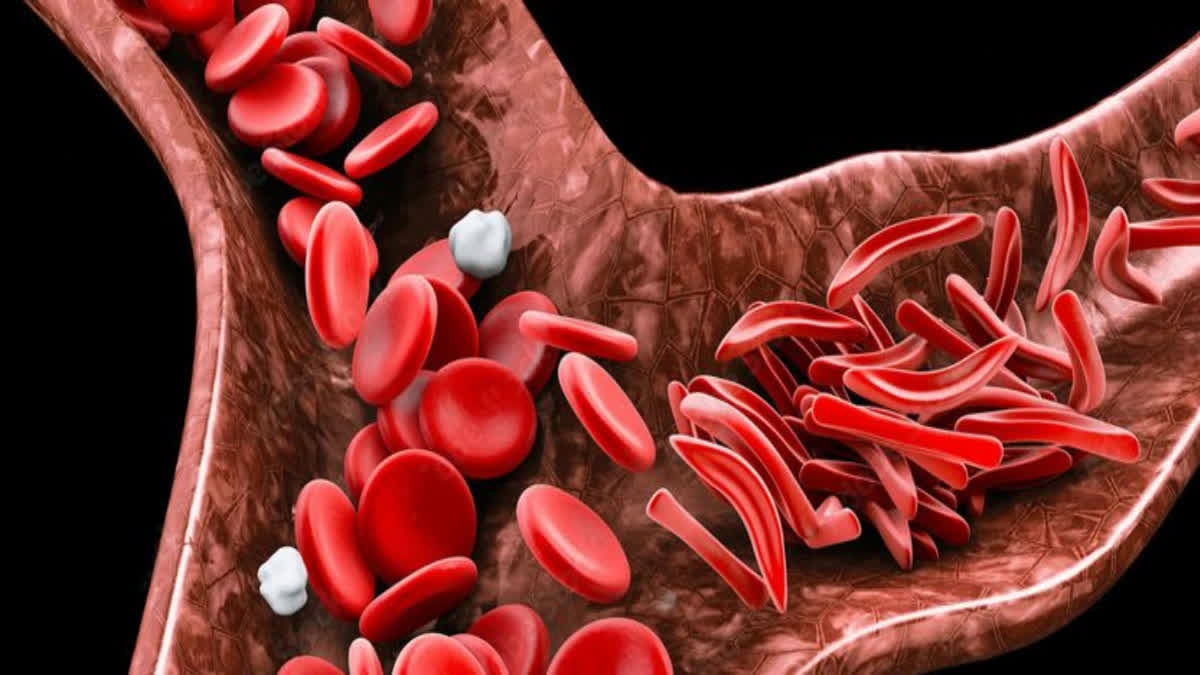New Delhi:Issuing a red flag for hospitalisation or referral to a higher centre for sickle cell disease, a standard treatment protocol prepared by the Indian Council of Medical Research (ICMR) on Monday said that people with significant respiratory symptoms (cough, shortness of breath, chest pain) or hypoxia need urgent attention for hospitalisation.
It further said that acute illness requiring immediate medical care, including emergencies, pain inadequately relieved by home measures, abdominal pain, distention, acute enlargement of spleen, any neurological signs or symptoms as well as significant coming and diarrhoea need immediate hospitalisation.
Sickle cell disease (SCD) is a hereditary blood ailment in which red blood cells break down and become misshapen. The cells die early, leaving a shortage of healthy red blood cells (sickle cell anaemia) and can block blood flow causing pain (sickle cell crisis). Sickle cell disease mainly occurs among the adivasi(tribal) communities in India. As per an estimate, 1 in 86 births among STs has SCD.
Suggesting that SCD affects haemoglobin (responsible for carrying oxygen in the blood) in red blood cells, which can result in morbidity and mortality, the ICMR suggested early detection and hospitalization of people having SCD. The ICMR study further said that long-term complications of SCD include end-organ damage, hepatopathy, chronic kidney disease, hypersplenism, avascular neurosis of the femur, foot ulcers etc.
